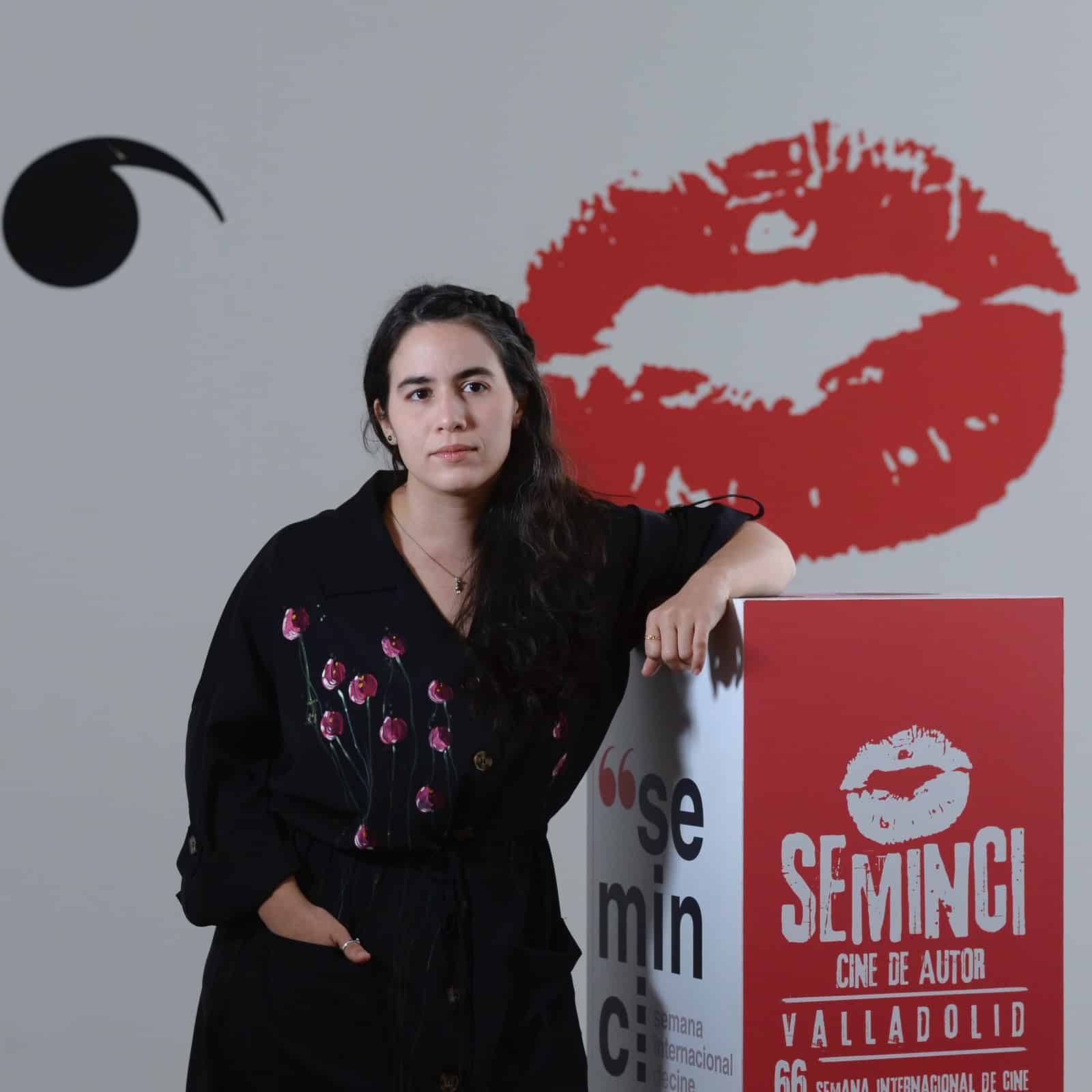It is the first time that a Costa Rican director has landed at Seminci, and she has done so with her first film, with which she is competing for the Pilar Miró Award with seven other new directors. Nathalie Álvarez Mesén appeared today Thursday, October 28th, 2021, in the Hall of Mirrors at Calderón Theatre, shy and very happy to be at the 66th edition of the Valladolid International Film Festival (Seminci), to present her debut feature, Clara Sola, a drama about female sexuality set in a rural region of Costa Rica, which she herself defined as “a film of magical realism.”
“The film is about a woman who lives in the mountains in Costa Rica. The people of the village think Clara has a connection with the Virgin Mary and they come to her asking for prayers, miracles… But being the local saint doesn’t seem compatible with having sexuality. The film follows her liberation from this role that doesn’t allow her to be a complete person, and parallel to her sexual awakening there is also a mystical awakening,” she explained. A story that, in a way, has something to do with her own life trajectory. “It was important to tell this story from a house that is a matriarchy, but reproduces the patriarchy. That’s my case and that of the co-writer (María Camila Arias), we have grown up with many women around us, but they have imposed rules on us, creating a very unpleasant situation, since they didn’t let us be ourselves. We also wanted to open a reflection on that.”
When asked what role religion plays in the film, the filmmaker answered: “Many religions are patriarchal, and many of the religious aspects have become traditions that, if no one questions them, will continue to be repeated. Most of my family is Catholic, I have a beautiful memory of the prayers and of that community, but there are some things in our cultures that we would have to break away from in some way; for example the role of the Virgin Mary, which is an image that all women have to aspire to be like, when that is something impossible, because to begin with she is a virgin and a mother; and if we cannot reach that, we are going to feel a little bad. In opposition to this theme of religion and its limits, we wanted to talk about the relationship with nature and spirituality, which instead of setting limits, opens them.”
In this film, “nature is just another character. With nature you can reach intimacy and honesty, as happens to Clara, since her best friend is a mare, she also has a beetle friend… who are also characters in the film.”
The main actress, Wendy Chinchilla, is a dancer who debuts as an actress in this film. How did she work on Clara’s physicality, her gestures? “I’m a mime actress, I studied physical theatre, and for this character I was convinced that I wanted someone with a lot of body awareness,” she said. “We met Wendy Chinchilla at a contemporary dance show, and Clara had to be a dancer, because although she is a very still character, inside she moves a lot. As Wendy herself says: Clara dances, but it’s a very internal dance. I think that in the end we created the character between the two of us. At the beginning she was very wolf-like, but we softened it. The character itself came from a scriptwriting course I did, in which we had to create a character. And then we created the story, since we all have many similarities with Clara, in terms of the things we have inherited from our mothers, from our grandmothers…”
The latter is something that Nathalie Álvarez Mesén insisted on: “Clara has a lot of me, but also of other people who have been involved in the process of this film. And what has been most interesting is the open way in which we have managed to talk about sexuality as well in the film crew. For example, in the scene in which Clara masturbates, which is a very magical realism scene, there was something that didn’t work… We talked about it, we gave it a lot of thought… until it worked. There was very open communication with the whole team and especially with Wendy.”
As she explained a little later: “Growing up there (in Costa Rica)… sex was always talked about very openly in terms of the biological part, but not in terms of desire and fantasies. I felt that there was a lack of space to talk about feminine desire, to return to our bodies and talk about what we feel, and the film is also small contribution to talking about that, to awakening internal revolutions and healing ourselves a little.
“Making films in Costa Rica is hard, there isn’t much support, fortunately new laws have just been passed that will help make more and better-quality films,” said the young filmmaker, who studied film in Sweden. “The beautiful and strange thing is that most of the films that are made there are made by female directors, there is a very strong women’s movement.”
Her next project, on which she is already working, as she mentioned, will be “a tropical gothic drama set in colonial America.”
Clara Sola is being screened today Thursday at Zorrilla Theatre at 19.00h, and will have two more screenings during the 66th edition of the Festival; one on Friday 29th at 22.00h at Cervantes Theatre, and another one on Saturday 30th at 16.00h at Carrión Theatre.



























![Logo Foro Cultural de Austria Madrid[1]](https://www.seminci.com/wp-content/uploads/2024/09/Logo-Foro-Cultural-de-Austria-Madrid1-300x76.jpg)








